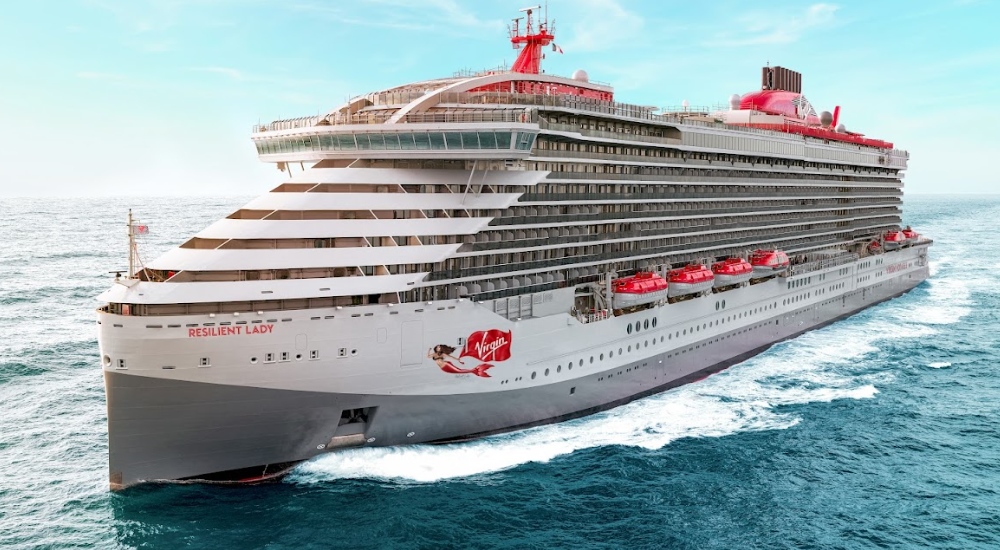On December 8th, 2022, Richard Branson’s premium cruise line, Virgin Voyages, made waves yet again and took delivery of the brand’s 3rd vessel, Resilient Lady.
Built from the ground up by Italian shipbuilder Fincantieri, the Resilient Lady is a mid-size cruise ship weighing 110,000 GT like her sisterships in the fleet: Scarlet Lady and Valiant Lady.
Built in Genoa's Sestri Ponente shipyard, Resilient Lady marks the Virgin cruise brand’s 3rd operational boat in the span of 2 years, an accomplishment for any brand, and a taller task for a new company that launched in 2021. On May 14, 2023, Resilient Lady is due to embark on her "MerMaiden Voyage" around the Greek Islands, making calls in Bodrum, Mykonos, Santorini, and Rhodes, prior to returning to her homeport in Athens-Piraeus, Greece. The ship will sail a couple of 8-night itineraries including the “Greek Island Glow”, and the “Adriatic Sea and Greek Gems,” complete with visits to Corfu, Dubrovnik, Kotor, and Split.
Following an inaugural season in the Mediterranean, Resilient Lady is due to embark on a 44-night relocation voyage from Europe to Australia via Suez Canal (RepositionCruises.com) for the winter 2023-24 season in Australia and New Zealand.
Starting October 22nd, 2023, she will depart Piraeus before visiting exotic destinations like Benoa Bali, Cairo, Dubai, Mumbai, Singapore, and Phuket. She will finally arrive in Sydney NSW on December 4th, 2023 for a series of media sneak peeks, celebrations, and more.

Virgin cruise ships are with passenger capacity of 2750 (plus 1150 crew), gross tonnage/volume of 110,000 GT tons, and ABB Azipod XO propulsion system (electric drive motors with off-hull submerged azimuth thrusters / 360--degree rotating propellers). These units provide the best maneuverability (allowing in-port navigation without tug assistance) and minimal vibrations/noise. By placing the propulsion units outside the hull, the Azipod system frees up space for more lower-deck staterooms. ABB Ability technology is based on a network using real-time data transferred to remote centers monitoring and analyzing the propulsion system data and also offering remote technical support.
These vessels stand out with innovative design ideas and solutions, as well as the latest marine technologies for energy recovery and environmental impact reduction. The ship's cleaning energy system is provided by the Swedish company Climeon Ocean. The technology allows for reducing CO2 emissions by converting diesel engines generated heat into electricity (capacity approx 1 MW) for onboard use. Each of the Virgin liners has 6 such units, saving annually approx 5400 tons of CO2. The waste processing system is provided by Scanship.
Wartsila (Finnish marine technologies corporation / former shipbuilder) was contracted to provide ships' powerplants. Each liner is powered by two 8-cylinder plus two 12-cylinder "Wartsila 46F" marine diesel engines. Wartsila's Hybrid Scrubber System operates in both open and closed-loop and uses seawater to remove SOx from the vessel's exhaust, also significantly reducing NOx emissions. The Wartsila-made navigation and automation control systems are from the company's latest NACOS Platinum series.
Alternative power is provided by 4-stroke engines powering four electricity generators, each equipped with TPL-C turbochargers (by ABB).